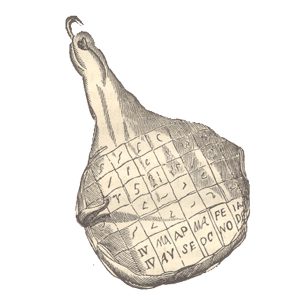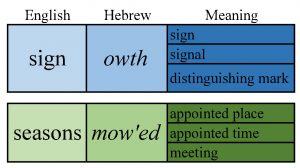 I have a question for you. What calendar do you use when interpreting the Bible’s prophetic record? Do you see “time” in the Bible through an Evangelical, Messianic, Hebrew Roots, Adventist, Catholic or some other denominational perspective? Can you give a reasonable explanation for your interpretational bias?
I have a question for you. What calendar do you use when interpreting the Bible’s prophetic record? Do you see “time” in the Bible through an Evangelical, Messianic, Hebrew Roots, Adventist, Catholic or some other denominational perspective? Can you give a reasonable explanation for your interpretational bias?
In my opinion the mechanics of “time” in the Biblical record is one of the most neglected aspects of Bible prophecy. It doesn’t matter whether you are one of today’s bestselling authors on Bible prophecy, a local pastor, or a layman like myself, few today can articulate a clear or reasonable understanding of how the Bible reckons “time” as it relates to the Bible’s prophetic record.
Some say the prophecies of the Bible should be interpreted using a solar year, others a lunar year and still others lunar/solar. Even more disconcerting is the fact that many prophecy teachers today use multiple and often conflicting calendars when interpreting the Bible’s prophetic record.
None of us like to miss appointments and as we draw closer to the Messiah’s return we need to ensure that we are reading our calendars correctly. Even if you believe you’re not going to be here for the final events of this age what about the people you leave behind? Will the calendar you have hanging on your wall provide them with an accurate understanding of the final prophetic events leading up to the Messiah’s return?
Today, I’d like to make an effort to bring a little bit of clarity to the calendar confusion. Hopefully by the time we are done you’ll have a more congruent understanding of Biblical “time” and how that “time” applies to the Bible’s prophetic record.
The Basics of Biblical Time
To get us headed in the right direction Continue reading
